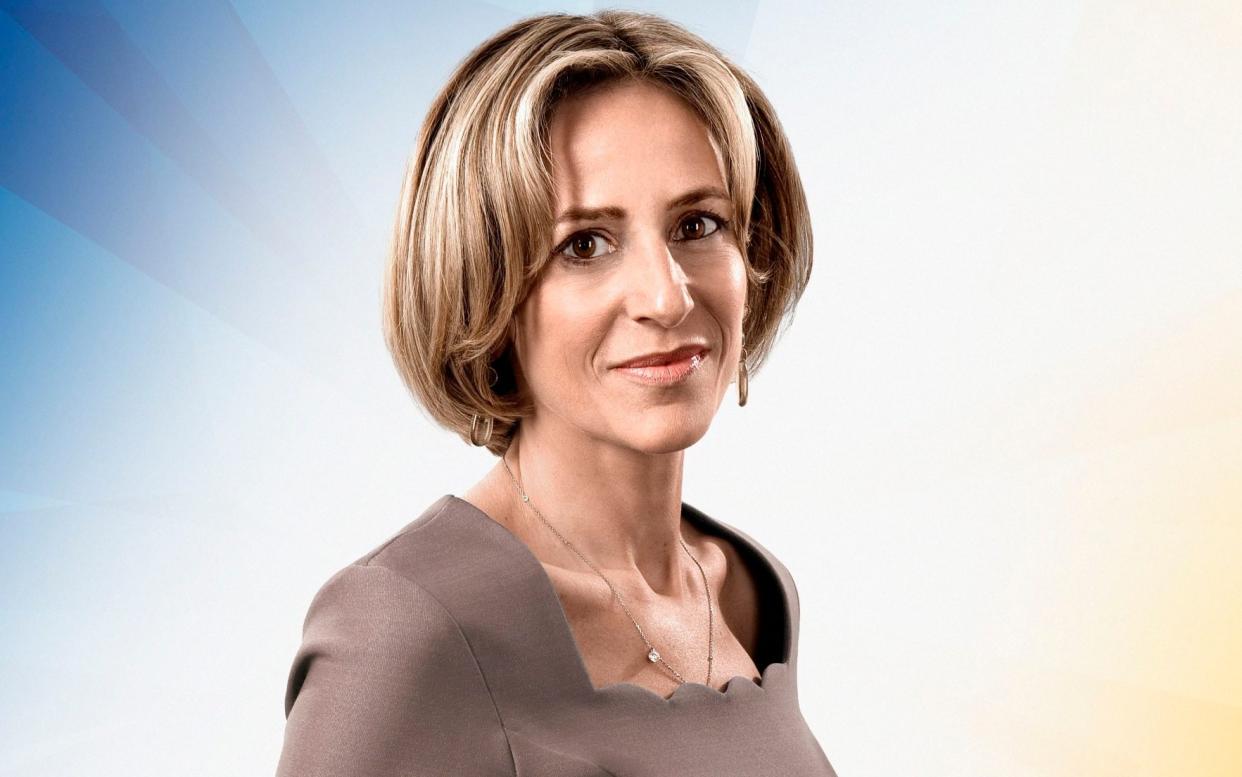Emily Maitlis suggests she 'deserves more respect' from BBC bosses

Emily Maitlis has fuelled her row with the BBC by sharing a message on social media which said she deserves “more respect” from the corporation.
The presenter was publicly reprimanded by BBC News management for “overstepping the mark” in her Newsnight monologue about Dominic Cummings.
Initially, her only comment on Twitter was to thank supporters for their kindness after they criticised the BBC for admonishing her.
But after the corporation released a lengthy statement explaining why her Newsnight remarks were unacceptable, Ms Maitlis shared this tweet from a follower, who wrote that her views "deserve more respect from her employers":
Thanks Henry. Immensely kind. https://t.co/iHnvqbFBDk
— emily m (@maitlis) May 29, 2020
Her next scheduled Newsnight appearance is on Monday.
The Telegraph has learned that the head of the BBC complaints unit previously criticised Ms Maitlis’s interviewing style on Newsnight as “combative” and casting “more heat than light”, it has emerged.
A viewer complained about an interview that Ms Maitlis conducted in March last year with Jacob Rees-Mogg, in which she repeatedly questioned his assertion that Theresa May’s Brexit deal would turn the UK into a “slave state”.
The BBC concluded that the presenter had not breached editorial guidelines. But in a letter to the complainant, Jeremy Hayes, the corporation’s complaints director, laid out his opinions on Ms Maitlis’s approach and said aspects of the interview were “regrettable”.
Mr Hayes said: “I have reviewed the programme. I agree that the interview cast more heat than light, including in the questions addressed to Mr Rees-Mogg about his reference to slavery, in a comment about the UK staying in the EU.
“I can see that the repeated further questioning on this point by the presenter would have done little to aid audience understanding of the issues discussed.
“The interview as a whole was combative, and the laughter of the presenter you described as ‘mocking’ did suggest that she was unwilling to accept his explanations.
Mr Hayes said there was “some editorial justification” for Ms Maitlis’s forceful approach but added that he understood why the complainant felt moved to contact the BBC.
He concluded that “while it will always be the aim of programme-makers to solicit answers which aid audience understanding of events, there is no guarantee this will happen. A failure to cast light on matters is of course regrettable - but does not necessarily constitute a breach of editorial standards.”
The interview with Mr Rees-Mogg took place on March 28 last year. When the complainant first contacted the BBC, he received a reply saying that Ms Maitlis had simply been “robust” and a second response saying she had demonstrated “a degree of persistence” in her questioning.
The complainant was dissatisfied and pursued the matter to the executive complaints unit, resulting in the personal communication from Mr Hayes.


